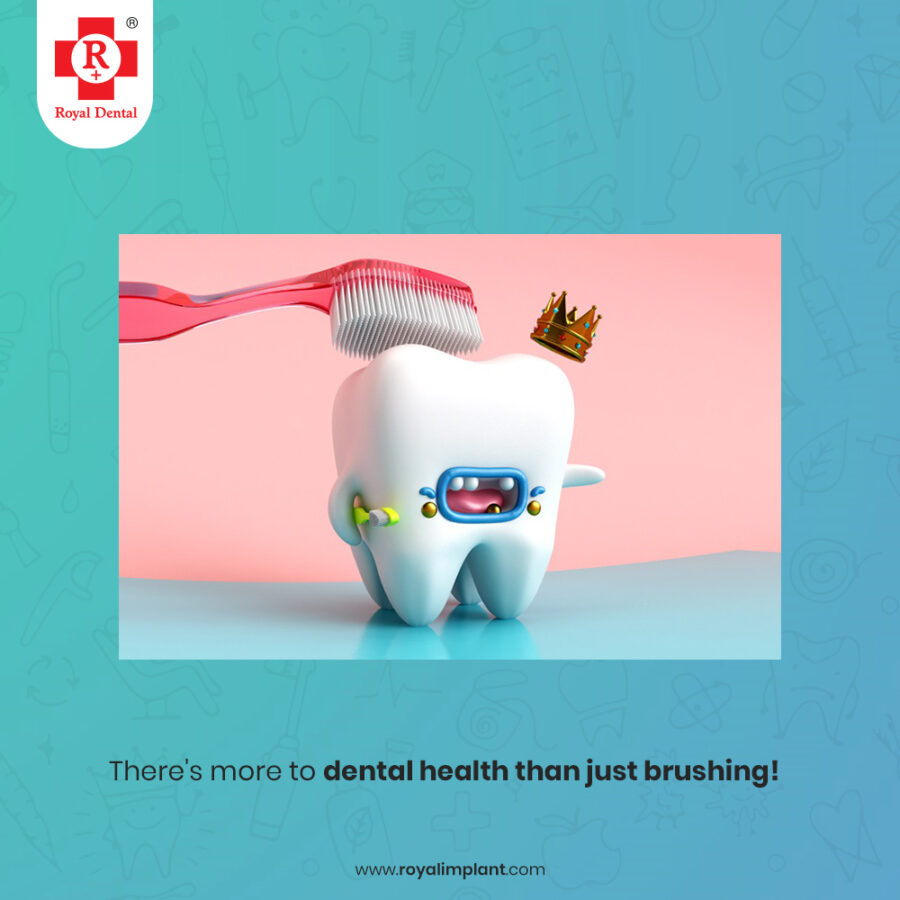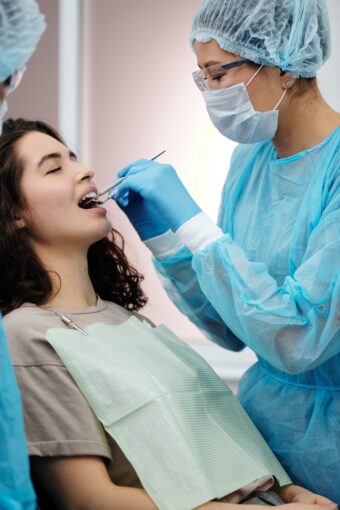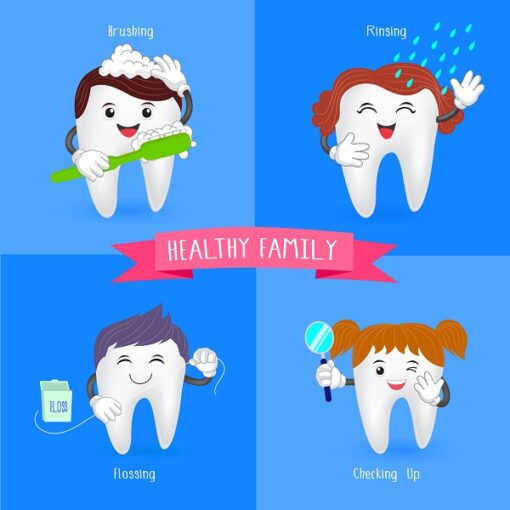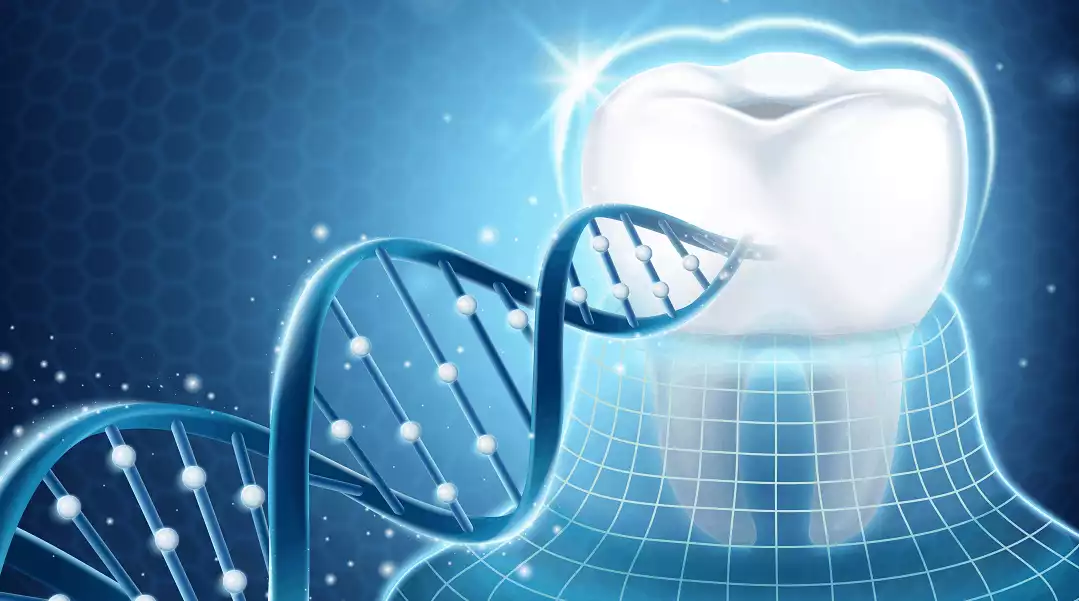Does oral health play a crucial role in our overall well-being? The answer is yes. Various factors contribute to the development of dental conditions. While we often attribute oral health problems to factors like diet, hygiene, and lifestyle, genetics also play a significant role in determining our susceptibility to dental issues. Understanding the genetic factors that influence oral health can help us develop more personalized prevention and treatment strategies. In this blog post, we will explore the role of genetics in oral health and delve into the genetic factors that affect dental conditions.
What are Genetic factors for Dental health?
Genetic factors are the inheritance of traits and characteristics from our parents. These traits are determined by the DNA we inherit from our parents, which is composed of genes. Genes are responsible for the physical and behavioral traits that we possess. This includes the traits that determine our dental health. The genes that we inherit from our parents can make us more susceptible to dental problems such as cavities, gum disease, and malocclusion.
Genetic factors interact with environmental factors to determine our dental health. Environmental factors such as diet, oral hygiene, and lifestyle can affect our dental health and exacerbate genetic factors that cause dental problems.
Genetic factors also determine the development of teeth. The shape and alignment of our teeth are determined by our genes. Malocclusion, or misalignment of teeth, is often an inherited trait. The size and shape of our teeth are also determined by our genes.
Role of genetics
The role of genetics in dental health is significant. Studies have shown that genetic factors account for up to 60% of the variation in susceptibility to dental problems. This means that our genes can make us more or less susceptible to dental problems such as cavities and gum disease.
Studies have also shown that genetic factors can determine the development of teeth. Malocclusion, or misalignment of teeth, is often an inherited trait. The size and shape of our teeth are also determined by our genes.

Genetic factors interact with environmental factors to determine our dental health. Environmental factors such as diet, oral hygiene, and lifestyle can affect our dental health and exacerbate genetic factors that cause dental problems.
Genetic Basis of Dental Conditions
Genetics influence the development and structure of our teeth and oral tissues. Certain genetic variations can increase the risk of dental conditions, including tooth decay, gum disease, malocclusion, and enamel defects. For example, researchers have identified specific genetic variations associated with a higher susceptibility to tooth decay. Understanding these genetic markers can enable early identification of individuals at risk, allowing for targeted preventive measures.
Inherited Disorders | Genetic Dental Health
Inherited dental disorders are a subset of dental conditions that are primarily caused by genetic mutations passed down from parents to their offspring. Conditions like amelogenesis imperfecta, dentin genesis imperfecta, and ectodermal dysplasia affect the development of tooth enamel, dentin, and other oral tissues. These disorders often result in structural abnormalities, weakened teeth, and an increased susceptibility to dental decay. Recognizing these genetic disorders is crucial for early intervention and proper management.
Saliva Composition and Genetic Variations
Saliva plays a vital role in maintaining oral health by protecting teeth and aiding in digestion. Recent studies have revealed that genetic variations can affect the composition of saliva, influencing its protective properties. Variations in genes involved in saliva production and composition can impact the balance of minerals, proteins, and enzymes in saliva, potentially affecting tooth mineralization and the ability to fight off harmful bacteria. Understanding these genetic factors could lead to personalized prevention strategies and targeted therapies.
Genetic Testing and Dental Health
Advancements in genetic research have made it possible to identify specific genetic markers associated with dental conditions. Genetic testing can help individuals understand their genetic predisposition to oral health problems and provide valuable insights for preventive care. By analyzing an individual’s genetic profile, dentists and healthcare professionals can develop personalized treatment plans, recommend appropriate oral hygiene practices, and provide targeted interventions to reduce the risk of dental conditions.
Future of Personalized Dentistry
As our understanding of the genetic basis of oral health expands, the field of dentistry is moving toward personalized approaches. The integration of genetic information with traditional dental practices holds great promise for improving oral health outcomes. By tailoring treatment plans based on an individual’s genetic profile, dental professionals can provide more precise and effective care, leading to better prevention, early intervention, and long-term oral health management.
Genetic Prevention | Dental Health
Regular Dental Check-ups: Schedule regular visits to a dentist who is familiar with genetic dental conditions. They can assess your oral health, identify any signs of genetic dental conditions, and recommend appropriate preventive measures.
Good Oral Hygiene: Maintain a consistent oral hygiene routine. Brush your teeth at least twice a day with a fluoride toothpaste and a soft-bristle toothbrush. Clean between your teeth using dental floss or interdental brushes. This helps remove plaque and prevent tooth decay and gum disease.
Balanced Diet: Follow a well-balanced diet that is low in sugary and acidic foods. Limit your intake of sugary snacks, sodas, and acidic beverages as they can contribute to tooth decay and erosion. Instead, opt for a diet rich in fruits, vegetables, lean proteins, and whole grains.


Fluoride Treatment: Fluoride strengthens tooth enamel and makes it more resistant to decay. Your dentist may recommend fluoride treatments, such as fluoride varnishes, gels, or mouth rinses. These can help protect your teeth and reduce the risk of cavities.
Dental Sealants: Dental sealants are thin plastic coatings that are applied to the chewing surfaces of the back teeth. They create a barrier that helps prevent decay by sealing off the deep grooves and fissures where bacteria and food particles can accumulate.
Orthodontic Treatment: Some genetic dental conditions may lead to misalignment or malocclusion. Orthodontic interventions, such as braces or aligners, can help correct these issues and improve both the function and aesthetics of your smile.
Future of Genetic Dentistry
The future of genetic dentistry is promising. Advances in genetic research can lead to more personalized approaches to dental care and prevention. Genetic testing can help identify individuals who are at higher risk for dental problems, allowing for personalized prevention and treatment strategies. Gene therapy is a promising field in genetic dental research. Gene therapy may one day be used to treat genetic dental conditions such as amelogenesis imperfecta and dentinogenetic imperfecta.
Conclusion
Genetics plays a significant role in determining our susceptibility to dental conditions. By understanding the genetic factors that influence oral health, we can develop personalized approaches to dental care. Genetic testing and advancements in research provide valuable insights into an individual’s genetic predisposition to dental conditions, allowing for targeted prevention, early intervention, and more effective treatment strategies. Embracing the role of genetics in oral health will undoubtedly shape the future of dentistry and pave the way for improved oral health outcomes for individuals worldwide.
© All rights reserved by Royal Dental Implants Pvt Ltd
Issued in public interest






